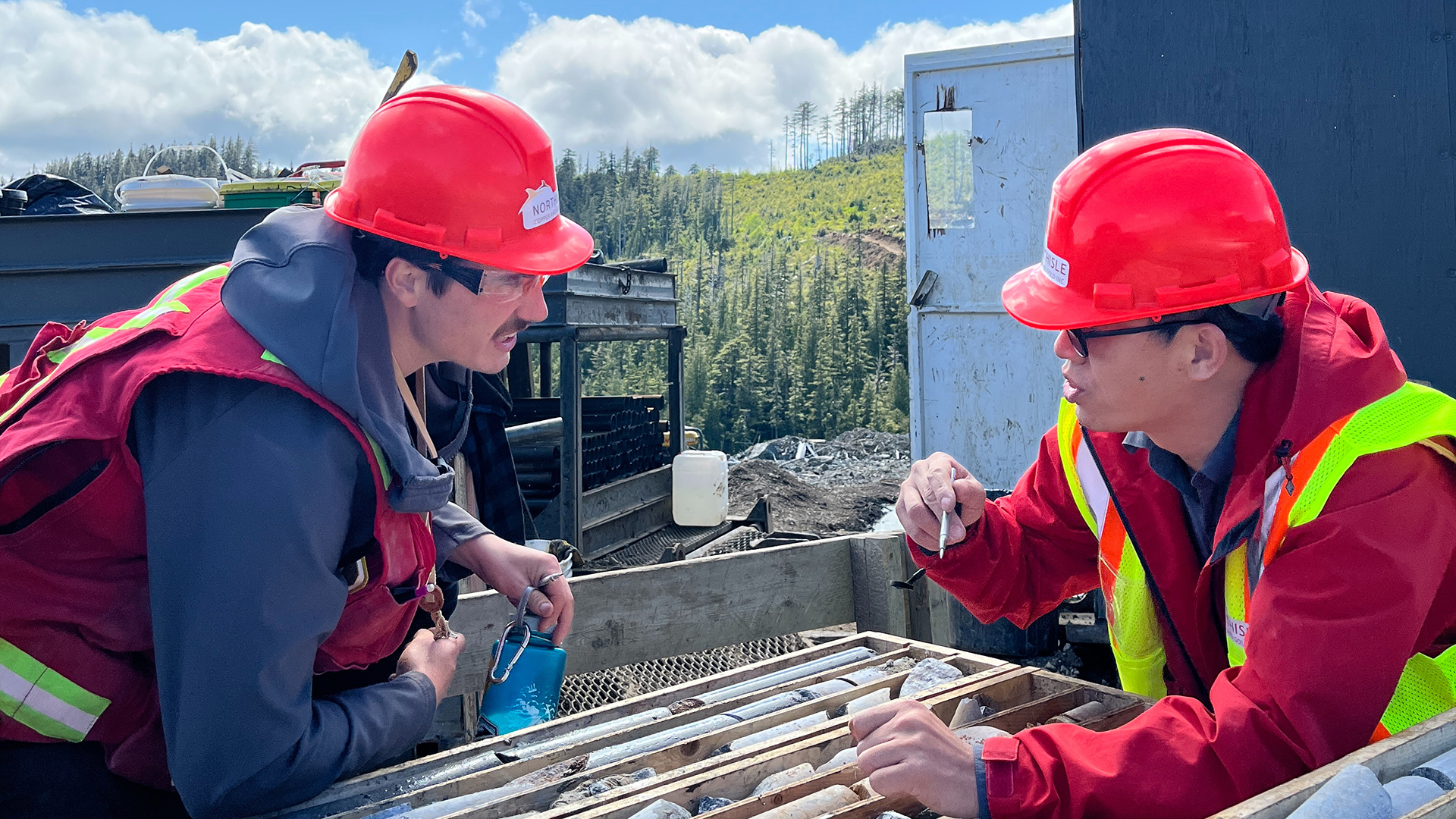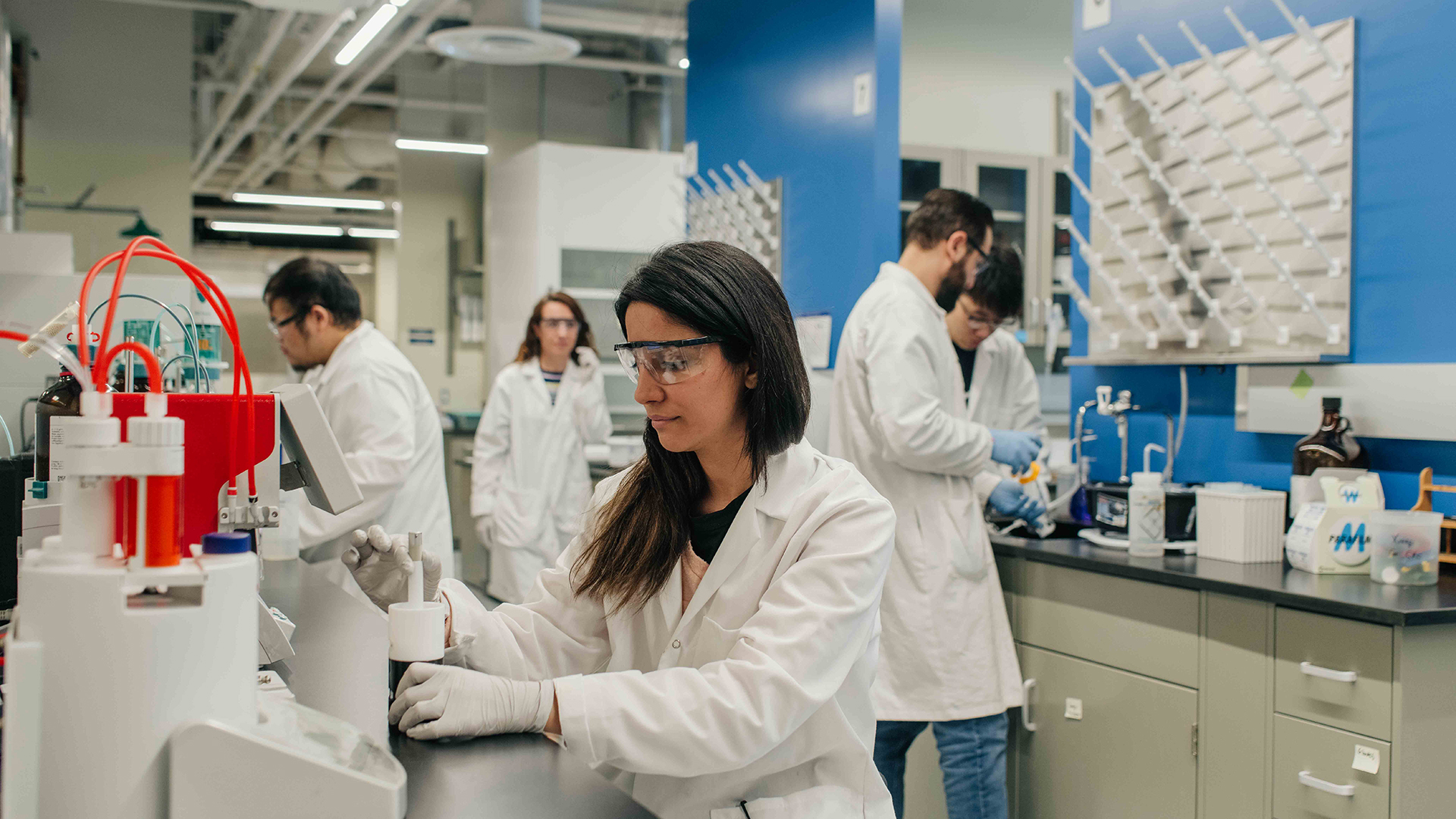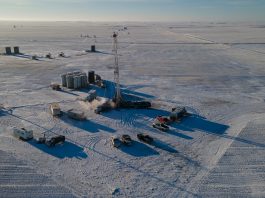Dr Andrew P Dean, Vice-President of Research and Innovation at Lakehead University, discusses the future of sustainable critical mineral exploration and development in Northern Ontario.
Canada is a world leader in critical mineral exploration and mining technology. Northern Ontario, in particular, has long been viewed as one of the country’s major centres for mining activities.
However, there are challenges facing our region and the industry in general. Expenditures for critical mineral exploration are increasing, but discoveries of new mineral resources are in decline. Companies, governments and communities are tasked with finding ways to undertake sustainable economic development while also ensuring environmental protection and respect for constitutionally protected Indigenous and Treaty rights.
Natural resource development and critical mineral exploration are vital socioeconomic pillars in northern Canada, and regional universities like Lakehead are equipped to help lead these industries into a more sustainable, greener and socially just future. Pairing our record for research excellence and innovation with our location, in the midst of geologically rich Northern Ontario, Lakehead University offers companies access to expertise, innovation and new technology that advance mineral discovery and development along the value chain.
With millions of new dollars in external research funding, two internationally acclaimed research centres, and two new research chairs that intersect in sustainability, resources and the environment, Lakehead is establishing itself as a major hub for advanced critical mineral exploration and development.
Lakehead University: 65 years of regional innovation and socioeconomic development
Situated along the shores of Lake Superior on Treaty Territory of Fort William First Nation, signatories to the Robinson-Superior Treaty in 1850, our Thunder Bay campus has access to a vast and vibrant natural laboratory of boreal forest and Canadian shield geology. For 65 years, Lakehead has served as the only university in the region, closely tying our strategic, academic and research goals to the needs of our communities.
As a comprehensive and research-intensive university, Lakehead plays a significant role in meeting university and industry needs by supporting high-quality, relevant research and producing the next generation of highly trained personnel. We invest in strong partnerships with governments at all levels, Indigenous communities and businesses, non-profits, and industries across Northern Ontario to advance regional prosperity, innovation and sustainable economic development.
With a current Research Plan that prioritises sustainability, resources and the environment, we look for opportunities to integrate research and development with respect for both the land and the water, supporting the cultures and traditions of Indigenous communities while also advancing resource discovery, responsible methods of extraction, and value optimisation. This kind of balanced and sustainable approach is essential to our regional economies, and has been a long-standing strength at Lakehead.
We are continually recognised nationally and globally for these efforts. Research Infosource ranked Lakehead University top in Canada in its category for not-for-profit research income in 2021. Lakehead is also the highest ranked university in the world with under 10,000 students in the Times Higher Education Impact Rankings, a measure of universities’ societal impacts via their success in delivering on the United Nations’ Sustainable Development Goals.
Regional sustainability, resource development and environmental health
Natural resources including forestry and mining are cornerstones of Northern Ontario economies and have been for centuries. As the region’s original inhabitants, Indigenous People relied on the vast boreal forests and rich mineral deposits for materials and trade, including copper, gold, silver and chert.1
The forest industry continues to serve as a key source of economic opportunity in Northern Ontario. Traditionally based on low-cost production of top-quality pulp, paper and lumber, the Canadian forestry industry boomed in the 20th century with access to immense forests and its location next to the United States – the world’s largest, most lucrative forest products market.2
But the early 2000s brought a global recession, new digital communications and growing competition. Newspaper use dropped, the American housing and home-building market collapsed and a downturn was forced upon the industry. More than 150 mills were closed, eight major firms declared bankrupty and more than 130,000 forestry sector jobs were lost across the country.2
Still, in 2021, the forestry sector accounted for almost CAD$35bn of the country’s GDP.3 To remain a viable, competitive part of the changing global economy, forestry companies across Canada and in Northern Ontario have begun a large-scale transformation by entering the emerging bioeconomy.
Northern Ontario is also an expansive region of varied geology with an abundance of natural minerals. Critical minerals including nickel, platinum and cobalt are produced here, and several advanced lithium and graphite mineral development projects are also underway.4
Other critical minerals that have either been produced in the region, or that occur in deposits currently being developed, include barite, chromite, fluorspar, magnesium, molybdenum, niobium, phosphate and tungsten.4
Lakehead’s proximity to the forestry and mining sectors, including the vast, mineral-rich deposit known as the Ring of Fire, and the University’s location within the region’s main transportation hub means we are perfectly placed for research, partnerships, and knowledge transfer. Sustainable critical mineral exploration methods and processes are continually evolving, and future innovations will depend on collaborative engagement between researchers, communities, governments and industry alike.
Research centres lead the way in sustainable resource development
Two research facilities at Lakehead, the Biorefining Research Institute and the Centre of Excellence for Sustainable Mining and Exploration, are strategically aligned with our Research Plan priorities in sustainability, resources, and the environment. They are also influential leaders in the innovation of local, national and international resource-based industries.
The Biorefining Research Institute has established a niche in the biorefining field as a forward-thinking innovation centre for forest biorefining technologies.
As part of its strategic plan, the Institute pursues technology research and development that will transform forestry and other resource industries in a sustainable way, contributing to regional prosperity and the global bioeconomy through novel utilisation of forest biomass.
The Institute has collaboratively developed several patented technologies, in addition to engaging and partnering with many stakeholders, nationally and internationally, on multiple research and innovation initiatives.
These partnerships led to the creation of a new Industrial Research Chair position for the Institute’s Director, Dr Pedram Fatehi, funded in collaboration with FPInnovations, GoldCorp, Resolute Forest Products and the Northern Ontario Heritage Fund Corporation. Dr Fatehi is also a Canada Research Chair in Green Chemicals and Processes.
In addition to working on biomass valorisation, the Institute is actively involved in converting the mining industry to sustainable processes in which minerals are extracted in the most efficient and sustainable way, with a minimum impact on the environment.
Likewise, the Centre of Excellence for Sustainable Mining and Exploration collaboratively links Lakehead researchers with First Nations, Métis, government, and industry partners. The Centre’s partnership approach recognises that the future of mineral resource exploration requires sophisticated planning, collaboration, assessment, implementation, and remediation strategies to minimise negative environmental, socioeconomic, and cultural impacts.
The Centre’s Director, Dr Peter Hollings, is a geology professor and an Industrial Research Chair in Mineral Exploration, funded by the Northern Ontario Heritage Fund Corporation and Impala Canada.
Through the Centre, researchers and their academic, community, government, and industry partners carry out interdisciplinary, cutting-edge research in advanced exploration, mineral processing and resource development, while also addressing the environmental, social and cultural aspects of mineral extraction.
Current challenges in critical mineral exploration
Modern resource development models rely on finding new partnership approaches that ensure sustainable economic development, the and respect for constitutionally protected Indigenous and Treaty rights. Despite a booming industry, new critical mineral discovery also requires new techniques for advanced exploration and more efficient extraction methods.
The Thunder Bay-Lake Nipigon region, for instance, is emerging as one of the most prospective and rich districts in Canada – possibly even the world – for magmatic sulfide deposits including platinum group metals.
However, critical research to foster development of more advanced exploration of these intrusions has not yet been undertaken. While these deposits represent a major source of revenue for the Canadian mining industry, the easy deposits have all been found. New information, tools and techniques are needed to unlock the potential of these opportunities.
A major challenge facing both researchers and the mining industry is the development of techniques to distinguish potentially mineralised rocks for ore, from those that are barren. This is critical for the development of efficient exploration strategies and a quicker turn-around from discovery to development. This type of value-chain optimisation is key to more resiliency in the resource-based industries and economies of Northern Ontario and Canada.
Similarly, identifying the processes that lead to higher-grade zones within the host rocks can also aid in the exploration for, and discovery of, new mineral-rich deposits. Northern Ontario is rich in undiscovered minerals; advanced research into sustainable exploration processes will lead the region and the province toward a larger segment of the modern, global, critical minerals supply chain.
Driving innovation and regional prosperity in critical mineral research
Currently, Lakehead’s Biorefining Research Institute is responding to resource industry challenges by focusing highly original and innovative research on meeting the needs of companies along the value chain, undertaking both fundamental/proof-of-concept studies and applied science projects.
Current research and technology development, led by Dr Fatehi as Industrial Research Chair, involves conversion of lignin from forest biomass (a compound present in the cell walls of plants and often considered waste products in the pulping industry) into platform chemicals, biochemicals, biomaterials, biofuels, and other high-end, value-added products.
For instance, he is developing renewable, lignin-based materials that can replace fossil-based ones for use in insulation, packaging and even batteries for electric vehicles.
Other innovative projects are specifically directed for application within the mining industry, such as the production of lignin-based and cellulose-based flocculants, dispersants, collectors and depressants (i.e., green chemicals).
Along with the feasible processes to apply them, Dr Fatehi and his team are developing these green chemicals to improve efficiencies and reduce environmental impacts of the mining and oil industries.
For example, waste materials from these industries generate a large quantity of waste in tailing ponds, which have limited economic value. This is costly to remediate and is of great environmental concern. With these new, green, low-cost and biodegrable alternatives, mining tailing ponds could be further processed to extract valuable compounds and reduce their environmental impact.
At the Centre of Excellence for Sustainable Mining and Exploration, Dr Hollings, an Industrial Research Chair, is working to improve exploration confidence and success in the quest for new discoveries of metal resources in Northern Ontario and Canada.
His work has the potential to lead to new discoveries by developing enhanced deposit models and exploration strategies that can be applied elsewhere within Canada and by Canadian mining companies working overseas.
He is developing tools to enable cost-effective exploration programmes that can maximise the information garnered in early stages, so that deposits are discovered sooner, more efficiently and at less cost – by reducing the amount of drilling required for discovery.
Other state-of-the-art analytical techniques in development offer the Centre’s industrial partners access to an enhanced understanding of the geology and genesis of mineralisation on their property. This can be used to guide further exploration and development, leading to more rapid development of new resources.
New regional-scale data sets are also in development at the Centre, particularly structural, isotopic and geochemical data that are modifying perceptions of the physical dimensions of the hydrothermal systems associated with mineralisation that will help inform the community of geologists working to discover the next generation of mines in Northern Ontario.
By combining innovative techniques with more traditional methods, the research and development underway by Dr Hollings and his team of researchers will provide refined insights for partner companies into the processes associated with the formation of mineral deposits. These can then be applied to increase exploration efficiency and lead to new discoveries in Northern Ontario.
The future of critical mineral exploration research at Lakehead
Moving forward, both the Biorefining Research Institute and the Centre of Excellence for Sustainable Mining and Exploration are prioritising the creation of partnerships to commercialise new innovations and technology into practical applications and value-added products.
Lakehead’s Faculty of Engineering has recently established and recruited a prestigious Industrial Research Chair in Critical Minerals Processing, jointly funded by Green Technology Metals, the Northern Ontario Heritage Fund Corporation, and Lakehead. The Department of Geology has also just recruited a Tier 2 Canada Research Chair in Critical Metal Systems this year. It is expected that both recruited chairs will begin their appointments in 2024 pending anticipated funding decisions.
Together, the research chairs will attract more external funding, researchers, graduate students and community and industry partners to firmly establish Northern Ontario as a national hub for advanced critical mineral exploration research.
The future of global critical mineral exploration and discovery is based on creating sustainable, green and socially just resource-based economic development opportunities. That future is already underway at Lakehead University – and we’re ready to share it with the world.
References
- The Canadian Encyclopedia: https://www.thecanadianencyclopedia.ca/en/article/mining
- Canadian Council of Forest Ministers (2015). White Paper: Forest Sector Innovation in Canada
- The State of Canada’s Forests Annual Report 2022: https://natural-resources.canada.ca/our-natural-resources/forests/state-canadas-forests-report/16496
- Ontario’s Critical Minerals Strategy 2022–2027: https://www.ontario.ca/files/2022-03/ndmnrf-ontario-critical-minerals-strategy-2022-2027-en-2022-03-22.pdf
Please note, this article will also appear in the sixteenth edition of our quarterly publication.











